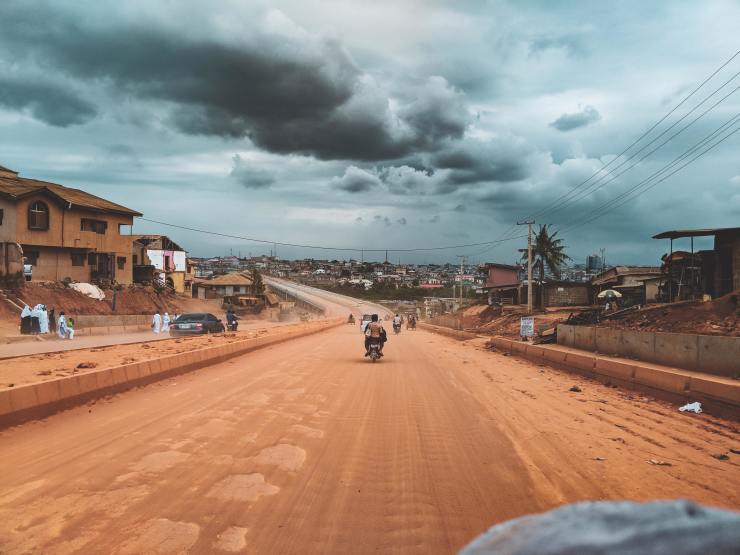
At least 5,000 Christians were killed in Nigeria in 2022 and over 1,000 were killed in the first three months of 2023, according to estimates released this week by the International Society for Civil Liberties and Rule of Law (Intersociety).
The Anambra-based civil society organization run by Christian criminologist Emeka Umeagbalasi released a report Thursday generating estimates based on statistics from local and international media, religious, community, security, research, intergovernmental, nongovernmental, international parliamentary organizations or diplomatic institutions.
The report suggests that 5,068 Christians were killed in 2022, while more than 3,000 Christians were abducted.
In a statement sent to The Christian Post, Intersociety said the violence has been particularly devastating in the states of Benue, Kaduna, Plateau, Taraba, Niger, Borno, Yobe, Adamawa and Kebbi.
"[Intersociety] is emotionally dedicating this special investigative Report to 1,041 slain and disappeared victims of the Jihadist Fulani Herdsmen and other Jihadists' genocidal attacks carried out across Nigeria in the first 100 days of 2023," the report states. "The under-listed slain and wounded victims also represent 5,068 others slain or caused to disappear without traces till date by Nigerian Jihadists in 2022."
Among the killings so far in 2023, Intersociety says the Benue state has been the most affected area, suffering 380 Christian deaths.
In addition to the human toll, the rise of extremist violence in Nigeria in the past decade has uprooted millions from their homes. Intersociety reports that 5 million have been forced into camps for internally displaced persons and refugees.
In its last update in September 2022, the United Nations High Commissioner for Refugees estimates that about 3.1 million Nigerians are internally displaced in Nigeria and close to 1 million are displaced in neighboring countries Cameroon, Chad and Niger.
The Intersociety report highlights the involvement of various groups in the violence, including jihadist Fulani herdsmen, Boko Haram, the Islamic State West Africa Province and the al-Qaeda-affiliated Ansaru.
In 2022 alone, Intersociety reports that radicalized Fulani herdsmen and their regional allies were responsible for 2,650 Christian deaths from January to October 2022, while ISWAP, Boko Haram and Ansaru accounted for another 450.
The Nigerian military has also been implicated in the killings, with 550 deaths attributed to ethnic and religious profiling in 2022, it noted.
In 2021, at least 5,191 vulnerable Christians were brutally killed, and an additional 3,800 were kidnapped by Nigerian Islamic extremists, the report further noted.
Intersociety's report accuses the Nigerian government and security agencies of failing to protect Christian citizens, saying the lack of proactive measures to prevent attacks and safeguard communities has allowed the violence to continue unabated.
Christian rights groups have warned for years about the deteriorating religious freedom conditions in Nigeria amid the rise of terror groups like Boko Haram and the Islamic State in the northeast. Advocates have also warned about an increase in deadly violence against predominantly Christian communities committed by radical herders in the farming-rich Middle Belt states as the country deals with desertification and erosion of natural resources.
Earlier this year, the U.S. State Department under President Joe Biden reaffirmed its decision to remove Nigeria from its list of countries of particular concern for religious freedom violations after conducting what it described as a "careful review."
Nigerian Christians, human rights groups and members of Congress objected to the decision to lift the CPC designation from Nigeria after Nigeria was added to the list in 2020 under the Trump administration.
Nadine Maenza, the former chair of the bipartisan U.S. Commission on International Religious Freedom, which advises the State Department and Congress about religious freedom matters, was "especially displeased" with the decision.
The CPC designation carries with it the possibility for sanctions and other deterrence actions to influence those countries to improve religious freedom conditions.
A 2021 religious freedom report released by the State Department in June 2022 noted, "There was pervasive violence involving predominantly Muslim herders and mostly Christian, but also Muslim, farmers, particularly in the North Central, but also in the North West (where most farmers were Muslim) and South West regions."
"According to the Nigeria security tracker maintained by the Council on Foreign Relations, there were an estimated 10,399 deaths from violent conflict during the year, compared with 9,694 in 2020," the report stated.
Christian human rights organizations have warned that the violence in Nigeria has risen to the level of "genocide." The Nigerian government has denied accusations that the violence is religiously motivated and has claimed the killings in the Middle Belt states are part of decades-old farmer-herder clashes.
Courtesy of The Christian Post.




